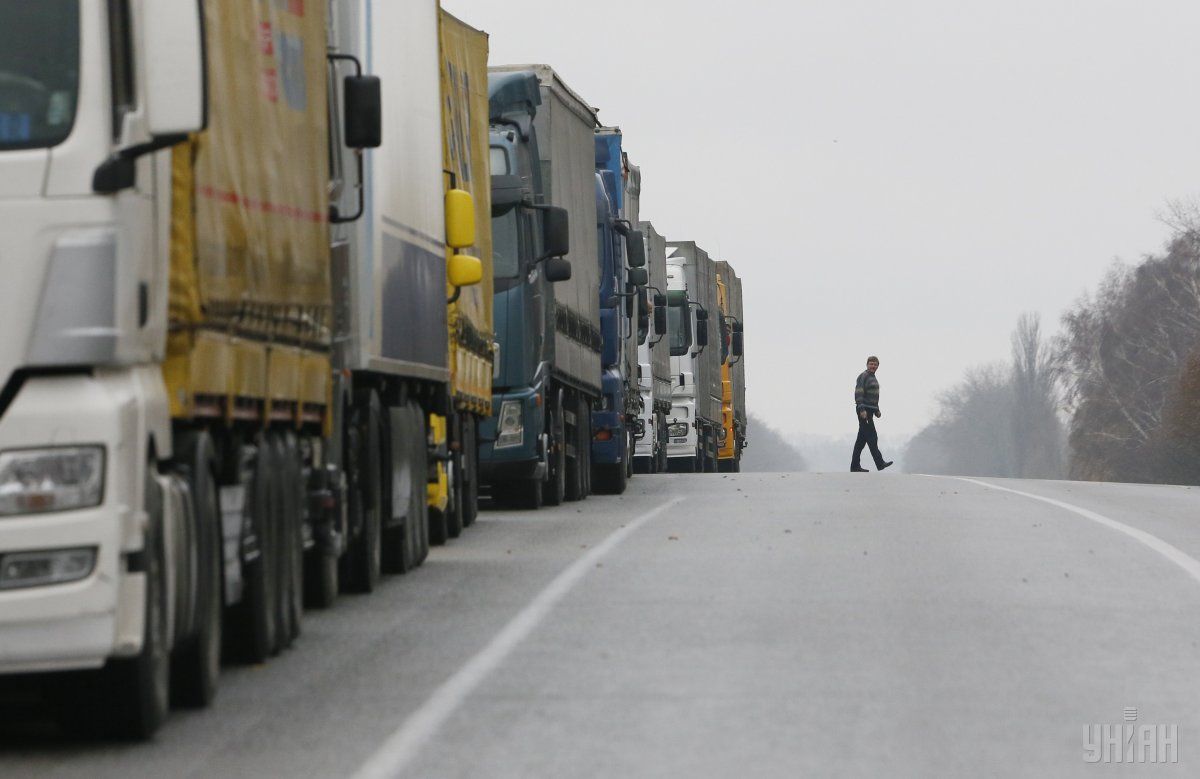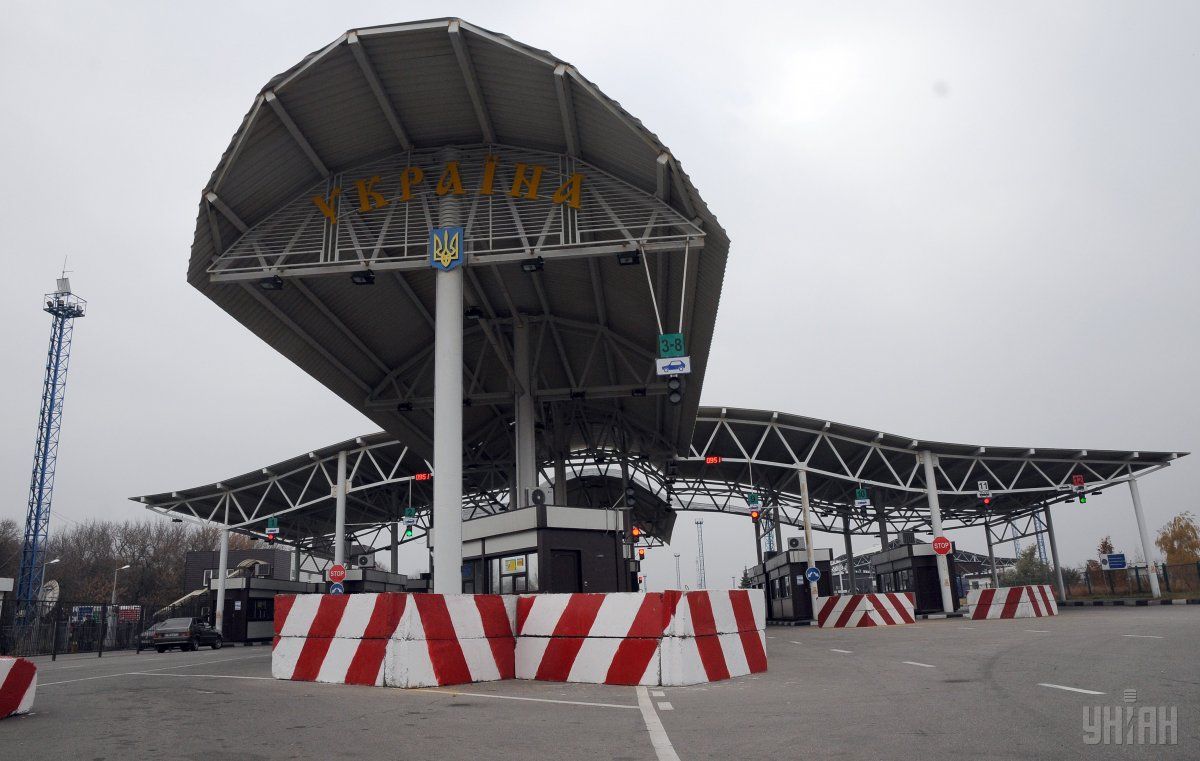
Putin greenlights transit of Ukrainian goods. What pitfalls should Kyiv expect
Russia allowed transit by road and rail of Ukrainian goods through its territory, which has been banned since 2016. The condition is the use of GLONASS satellite tracking technology, as well as registration coupons. Experts do not believe in the "good intentions" of the northern neighbor – everything that Russia is doing always has a clear and goal that is far from being kind to Ukraine.
Russia eased its sanctions against Ukraine. The Kremlin chief, Vladimir Putin, approved edits to his decree of 2018 on the use of special economic measures over "unfriendly actions", and allowed road and rail transit of Ukrainian goods through the territory of the Russian Federation to third countries, but "subject to ensuring their traceability using GLONASS technology." On June 24, the document was officially promulgated.
The transit conditions are as follows – all vehicles and goods must have seals with GLONASS technology, and all drivers must have a registration coupon. If the use of seals is violated, coupons will be annulled and fines applied. The mechanism comes into force on July 1.
Transit veto
The transit conflict between Kyiv and Moscow has lasted since 2014. But all road and rail transportation of Ukrainian agricultural products and goods subject to more than zero customs duty in accordance with the Unified Customs Tariff of the Eurasian Economic Union, intended for recipients from Kazakhstan and Kyrgyzstan, was banned by the Russian Federation on July 1, 2016. Subsequently, Russia imposed similar restrictions on Ukrainian goods bound for Mongolia, Tajikistan, Turkmenistan, and Uzbekistan. In fact, Ukraine was deprived of trade communication with Central Asia across the Ukrainian-Russian and Belarusian-Russian borders.
On September 14, 2016, Ukraine applied to the Russian Federation regarding consultations in connection with the existing situation. Having been refused, Kyiv on February 9, 2017, filed a lawsuit with the WTO for the creation of a panel to consider the issue. WTO in its verdict in the case rejected Ukraine's claims. The panel has established that the actions of Russia satisfy all the requirements for the application of security restrictions, therefore, Moscow has not violated the commitments made when joining the WTO.
In fact, the World Trade Organization agreed with the Kremlin's claims that restrictive measures "are among those that are necessary to protect their basic security interests." Although it decided that "the application of the norm cannot depend only on the will of one side: the emergency should be related to the interests of defense or order, the timing of measures should correspond to the duration of the emergency, and the concept "essential interests of national security" refers only to defending population and territory from external threats or to the maintenance of law and order."
By the way, the case itself is unprecedented, as it was first considered by the WTO under Article 21 of the GATT, which allows for the introduction of protective measures in the event of a threat to national security. Not a single state, except Ukraine, has ever decided to file a complaint regarding the legality of applying this article. But the WTO agreed with the position of Russia – they say, the political situation in Ukraine in 2014-2015 created significant threats to the national security of the Russian Federation. As a result, the transit restriction was not recognized as a violation. That is, Ukraine lost the transit dispute. And suddenly, Russia itself canceled the "veto" on the transportation of goods through its territory.
A pro-Russian Ukrainian politician, leader of the Opposition Platform - For Life Party Viktor Mevedchuk, hurried to declare that with this decision Moscow allegedly demonstrated its readiness to reestablish interstate economic relations with Kiyv. He even attributed this "feat" to himself, claiming that the transit issue was discussed during his meeting with the head of the Russian government, Dmitry Medvedev, and Gazprom CEO Alexei Miller, which was held in Moscow on March 22, 2019. His party colleague Yury Boyko also took part in the negotiations.
However, the case concerning their visit to Russia is now being considered by the prosecutor's office.

Unprecedented "generosity"
Experts believe that applauding the transit decision of the Russian Federation would be premature. After all, Russia never does any actions towards Ukraine without a catch.
According to head of the expert-analytical council at Ukrainian Analytical Center, Borys Kushniruk, in order to understand the Kremlin's plan, one first needs to see in practice how transit will work.
"It is possible that Russia will solve two problems for itself. The first advantage is that they will put 'their' companies on transit flows, for example, colleagues of a Moscow-loyal Medvedchuk, who is now claiming he contributed to settlement in the transit process. That is, only the 'right' companies will pass through the territory of the Russian Federation. Another thing is that Russia increases the use of GLONASS navigation system, which is not very popular at the moment. And so they will create additional demand for it. It is still early to give a favorable forecast regarding the 'transit' decree. Everything that Russia does has a clearly defined goal. Therefore, I do not believe in good intentions. That is, it is probably some kind of trick, in favor of the Russian Federation, not a step toward Ukraine," the expert noted.
Vice-president of the Association of International Road Carriers of Ukraine, Petro Hlavatsky, believes that there is no reason to rejoice at the changes proposed by Putin.
"Rejoicing would be premature. We consulted with the Ministry of Infrastructure, talked with colleagues from the Russian Association of International Carriers, and the decree itself was officially published. A separate paragraph is on the transit of goods from Ukraine; it also gives five points of instructions to the government to work out the mechanism. And there are no relevant decrees of the Russian government yet. The decree of the President of Russia should come into force on July 1. According to the logic, until that time, the decisions will have been made public. According to our information, there may be a slight delay of 2-3 days. Nevertheless, a lot of questions remain. We are not very pleased with the instructions given to the government of the Russian Federation," Hlavatsky stressed.
According to him, Ukrainian carriers have already dealt with GLONASS system, but it is unclear how it will work after the amendments to Putin’s decree come into force.
"It is necessary to check well what stands behind Putin's decree. In addition, so far there is no information, what the tariff and terms of the use of GLONASS will be. Plus, we are talking about some registration coupons. It is not at all clear how they will be used, but on the other hand, the penalty for their absence is already established at RUB 100,000-150,000. Allegedly, 30 checkpoints have already been identified, where clearance of both vehicles and trains will be carried out. After reviewing the scheme on the map, we found only four checkpoints for cars on the Ukrainian-Russian border... So, as long as there is no resolution of the Russian government, it is difficult to say what will happen in practice," said the expert.
He also noted that since Russia blocked the transit of almost 99% of Ukrainian goods, exporters suffered billions in losses, first of all, exporters, and then carriers. The latter began transporting goods via different routes: through two seas – to Kazakhstan and Azerbaijan and Kyrgyzstan. But this significantly increased the cost of delivery. According to the Association’s estimates, the cost of a single delivery to Kazakhstan increased by $5,000. And it automatically added up to the cost of the products that were delivered. And these are mainly products of the foodstuff group. Naturally, the situation was reflected in the competition of Ukrainian goods.
"If the transit mechanism proposed by the Russian Federation is acceptable, then Ukraine will be making double the money it is making now. We can count the number of deliveries. When transit through the territory of Russia was opened to Kazakhstan, on average, our carriers made 10,000-12,000 deliveries. After the transit was halted, the number has been halved. But all the same, it is necessary to calculate how much the proposed transit will cost," Hlavatsky concluded.
Even if the Russian government delays with its decisions on the mechanism for the transit of Ukrainian goods through Russian territory, it will be clear in early July whether the Russian proposal can be considered advantageous. And only then will it be possible to draw conclusions on how "good" the intentions of the Kremlin are.
Nana Chornaya

